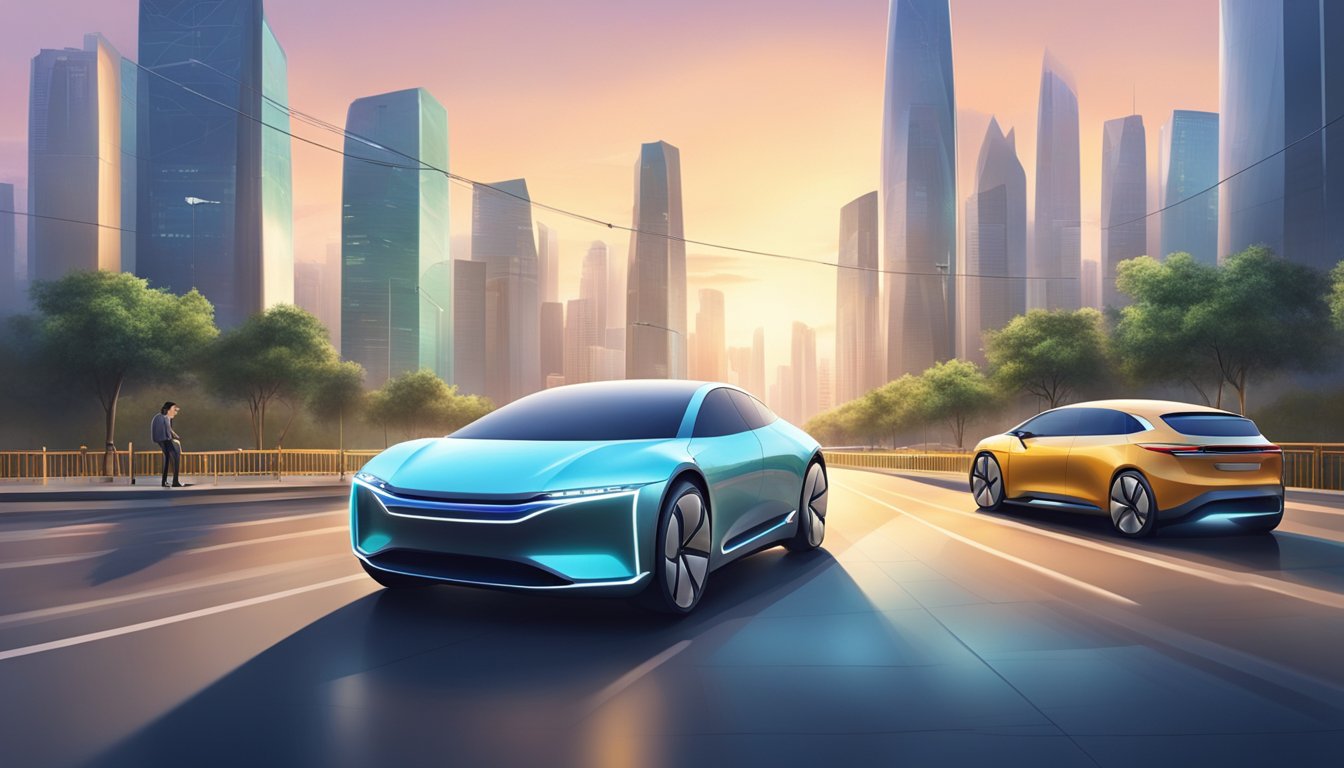Sino Evs Cars
The Rise of Chinese Electric Vehicles: Dominating the Global EV Industry
The electric vehicle (EV) revolution is well underway, and the global automotive landscape is poised for a dramatic shift. At the forefront of this transformation is China, a country that has rapidly emerged as a powerhouse in the EV industry. With significant advancements in technology, substantial government support, and an ambitious vision for the future, Chinese electric cars are set to dominate the world EV market, outpacing competitors and leading the charge towards a sustainable automotive future.
The Foundation of China’s EV Dominance
China’s rise in the EV sector is no accident. It is the result of a carefully orchestrated strategy that combines innovation, investment, and regulatory support. Here are the key factors underpinning China’s impending dominance:
Government Support and Policy Incentives:
The Chinese government has played a crucial role in fostering the growth of its EV industry. Through a series of policies, subsidies, and incentives, China has created an environment conducive to EV innovation and adoption. Policies such as the New Energy Vehicle (NEV) mandate, which requires a certain percentage of automakers’ sales to be electric, have spurred manufacturers to prioritize EV production. Additionally, substantial subsidies for both manufacturers and consumers have made electric cars more accessible and affordable.
Technological Advancements and R&D Investments:
Chinese companies have made significant strides in EV technology, particularly in battery development. With substantial investments in research and development, China has achieved breakthroughs in battery efficiency, longevity, and cost reduction. Companies like CATL (Contemporary Amperex Technology Co. Limited) have become global leaders in battery manufacturing, supplying not only domestic brands but also international automakers.
Economies of Scale and Manufacturing Prowess:
China’s manufacturing capabilities are unparalleled. The country has leveraged its vast industrial base to achieve economies of scale in EV production. This has enabled Chinese automakers to produce electric cars at a lower cost compared to their international counterparts. As production scales up, the cost per unit decreases, making Chinese EVs increasingly competitive on the global stage.
Robust Domestic Market:
China is the largest auto market in the world, and its domestic demand for electric vehicles is immense. With a growing middle class and increasing environmental awareness, the demand for EVs continues to rise. This robust domestic market provides Chinese automakers with a strong foundation, allowing them to refine their products and scale production before expanding internationally.
Overcoming International Challenges
While China’s EV industry is on a trajectory to dominate the global market, it faces significant challenges, particularly in the form of international competition and trade barriers. One of the most notable obstacles is the imposition of tariffs on Chinese EVs by the United States.
The tariffs, aimed at protecting domestic manufacturers, have increased the cost of Chinese electric cars in the U.S. market. However, Chinese automakers are employing several strategies to mitigate the impact of these tariffs:
Localization of Production:
To circumvent tariffs, Chinese companies are investing in manufacturing facilities abroad. By establishing plants in key markets such as the United States and Europe, Chinese automakers can produce vehicles locally, avoiding import tariffs and creating jobs in the host countries, which can also help to improve their brand image and acceptance.
Strategic Partnerships and Collaborations:
Chinese EV manufacturers are forming strategic alliances with international companies to enhance their global presence. Partnerships with established automakers and technology firms allow Chinese companies to leverage local expertise and distribution networks, facilitating smoother market entry and expansion.
Focus on Innovation and Quality:
To compete in mature markets, Chinese EV makers are emphasizing innovation and quality. By offering advanced features, superior performance, and competitive pricing, they are positioning their vehicles as attractive alternatives to traditional automakers. Continuous improvements in battery technology, autonomous driving capabilities, and smart connectivity are key areas of focus.
The Road Ahead
The future of the global EV industry is bright, and China is poised to lead the charge. With its comprehensive strategy encompassing government support, technological innovation, manufacturing prowess, and strategic international expansion, China is well-positioned to become the dominant player in the electric vehicle market.
As Chinese EVs become more prevalent on roads worldwide, they will play a crucial role in accelerating the transition to sustainable transportation. The rise of Chinese electric cars signifies not just a shift in market dynamics but also a step towards a greener, more sustainable future for the global automotive industry.
